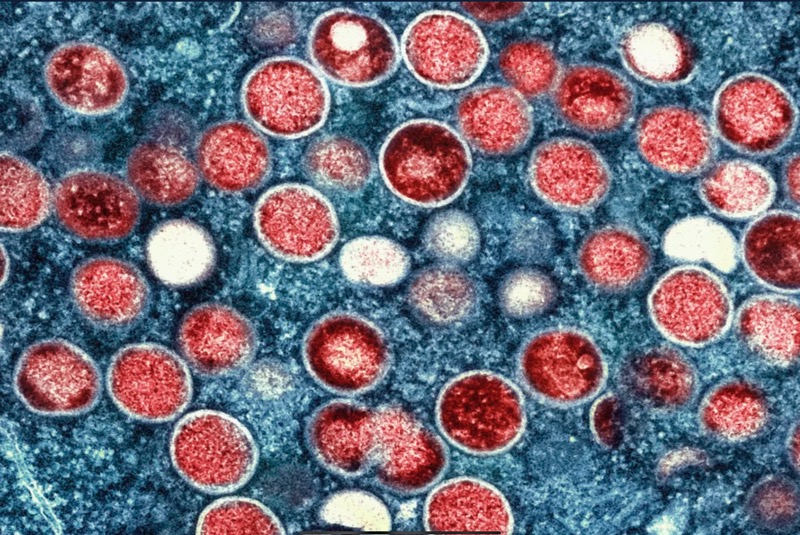“Today, the Emergency Committee on #mpox met and advised me that in its view, the situation constitutes a public health emergency of international concern. I have accepted that advice,” said Tedros Adhanom Ghebreyesus, the Director-General of the World Health Organisation.
MPOX (short for monkeypox) is a viral infection caused by the monkeypox virus; it can spread between people through close contact with infected persons. Close contact includes being face-to-face (such as talking or breathing close to one another, which can generate droplets or short-range aerosols); skin-to-skin (such as touching or vaginal/anal sex); mouth-to-mouth (such as kissing); or mouth-to-skin contact (such as oral sex or kissing the skin).
It is also possible for the monkeypox virus to persist for some time on clothing, bedding, towels, objects, electronics and surfaces that a person with mpox has touched. Someone else who touches these items may become infected, particularly if they have any cuts or abrasions or touch their eyes, nose, mouth or other mucous membranes without first washing their hands. Cleaning and disinfecting surfaces/objects and cleaning your hands after touching surfaces/objects that may be contaminated can help prevent this transmission.
Occasionally, it can also spread from the environment to people via things and surfaces’ that a person with mpox has touched. In settings where the monkeypox virus is present among some wild animals, ‘it can also be transmitted from infected animals to people who have contact with them.’ The virus can also spread during pregnancy to the fetus, during or after birth through skin-to-skin contact, or from a parent with mpox to an infant or child during close contact.
Typically, pregnant women, children and persons who are immunocompromised – including people with untreated and advanced HIV disease – are at higher risk. The symptoms range from ‘less severe symptoms’ to ‘more serious illness’, which may necessitate care in a health facility. Common symptoms include a rash that may last 2–4 weeks. This may ‘start with or be followed by fever, headache, muscle aches, back pain, low energy and swollen glands (lymph nodes).’
The rash ‘looks like blisters or sores, and can affect the face, palms of the hands, soles of the feet, groin, genital and/or anal regions.’ They may also be found in the mouth, throat, anus, rectum or vagina, or on the eyes. The number of sores can range from one to several thousand. Some people develop inflammation inside the rectum (proctitis) that can cause severe pain and inflammation of the genitals that may cause difficulties urinating.
In most cases, the symptoms of mpox go away on their own within a few weeks with supportive care, such as medication for pain or fever. People with mpox are considered infectious until all their lesions have crusted over, the scabs have fallen off, and a new layer of skin has formed underneath, and all the lesions on the eyes and in the body (in the mouth, throat, eyes, vagina and anus) have healed. However, in some people, the illness can be severe or lead to complications and even death.
Severe disease due to mpox may include larger, more widespread lesions (especially in the mouth, eyes, and genitals), secondary bacterial infections of the skin or blood and lung infections. Complications can include severe bacterial infection from skin lesions, mpox affecting the brain (encephalitis), heart (myocarditis) or lungs (pneumonia), and eye problems.
People with severe mpox may require hospitalisation, supportive care and antiviral medicines to reduce the severity of lesions and shorten the time to recovery. According to available data, between 0.1% and 10% of people with mpox have died. It is important to note that death rates in different settings may differ due to several factors, such as access to health care and underlying immunosuppression.
So far, more than 96 per cent of all cases and deaths are in a single country — Congo. Scientists are concerned about the spread of a new version of the disease that might be more easily transmitted among people.
The Africa Centers for Disease Control and Prevention declared this week that the increasing spread of mpox across the continent is a health emergency, warning the virus might ultimately spill across international borders.
The World Health Organization convened a meeting of experts and declared it a ‘public health emergency of international concern’. There have been more than 14,000 cases and 524 deaths this year, according to the U.N. health agency.
-30-
Copyright©Madras Courier, All Rights Reserved. You may share using our article tools. Please don't cut articles from madrascourier.com and redistribute by email, post to the web, mobile phone or social media.Please send in your feed back and comments to [email protected]











